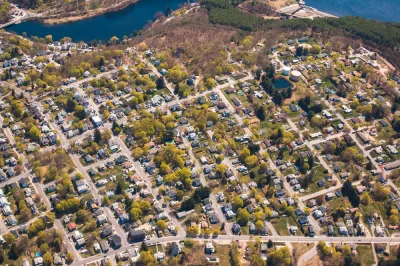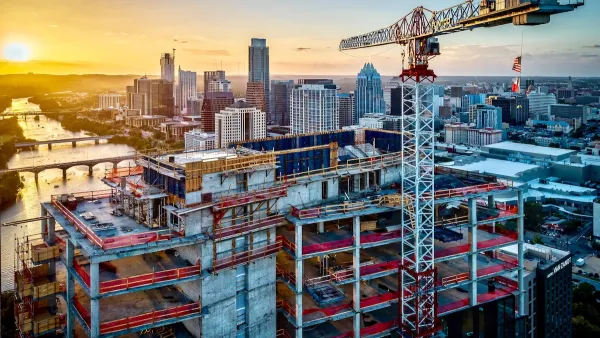A statewide zoning reform bill that made it part of the way through the Massachusetts State Legislature in 2016 is back up for consideration this year.

The state of Massachusetts is working on a comprehensive zoning reform bill that would make the first time since Gerald Ford was president of the United States that the state has overhauled its zoning rules. "In the decades since, restrictive zoning practices in many of the state’s leafier suburbs have hardened into patterns that exclude family housing, mixed-income developments, even modest accessory dwellings such as granny flats," writes Renée Loth, who characterizes the zoning reform effort as a potential salve for the state's affordable housing crisis.
A zoning reform bill sponsored by Acting Senate President Harriette Chandler passed the State Senate in 2016, but it must still be ratified and debated in the current legislative session, according to Loth. The cause of loosening zoning restrictions has support from the Governor's Office as well. In December, Governor Charlie Baker "announced a statewide plan to ease housing construction throughout the approval and development process," according to a Planetizen article sharing that news.
As for the details of this new statewide zoning reform bill, Loth explains:
The zoning reform bill sets new statewide standards allowing for multifamily housing, accessory dwelling units, cluster zoning to preserve open space, and other “smart growth” initiatives. It eases the current statewide requirement of a super-majority vote to change local zoning or to grant special permits. It helps smaller communities plan better through grants and training. And, importantly, it explicitly outlaws “exclusionary land use practices” that discriminate against racial or economic minorities, families, and other protected classes.
The text of the bill that made it through the Senate in 2016, S.2311, is available online.
FULL STORY: Zoning reform offers a path to economic equality and social integration

Maui's Vacation Rental Debate Turns Ugly
Verbal attacks, misinformation campaigns and fistfights plague a high-stakes debate to convert thousands of vacation rentals into long-term housing.

Planetizen Federal Action Tracker
A weekly monitor of how Trump’s orders and actions are impacting planners and planning in America.

In Urban Planning, AI Prompting Could be the New Design Thinking
Creativity has long been key to great urban design. What if we see AI as our new creative partner?

Pedestrian Deaths Drop, Remain Twice as High as in 2009
Fatalities declined by 4 percent in 2024, but the U.S. is still nowhere close to ‘Vision Zero.’

King County Supportive Housing Program Offers Hope for Unhoused Residents
The county is taking a ‘Housing First’ approach that prioritizes getting people into housing, then offering wraparound supportive services.

Researchers Use AI to Get Clearer Picture of US Housing
Analysts are using artificial intelligence to supercharge their research by allowing them to comb through data faster. Though these AI tools can be error prone, they save time and housing researchers are optimistic about the future.
Urban Design for Planners 1: Software Tools
This six-course series explores essential urban design concepts using open source software and equips planners with the tools they need to participate fully in the urban design process.
Planning for Universal Design
Learn the tools for implementing Universal Design in planning regulations.
planning NEXT
Appalachian Highlands Housing Partners
Mpact (founded as Rail~Volution)
City of Camden Redevelopment Agency
City of Astoria
City of Portland
City of Laramie





























